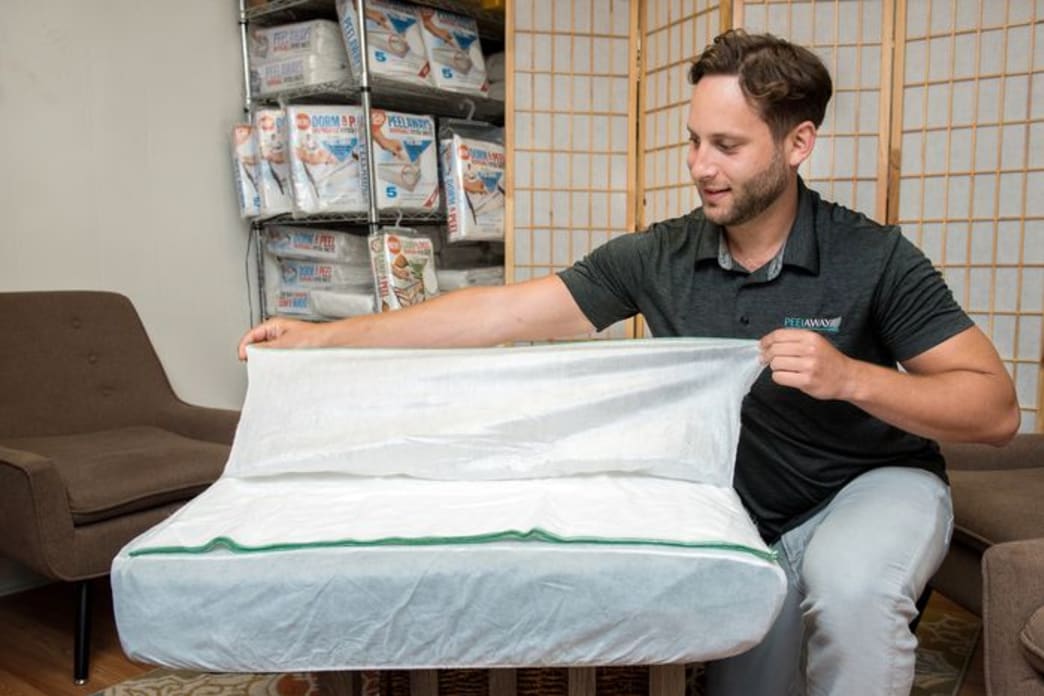Caring for an Aging Parent: Top Tips for 2021


Watching our parents grow older and face some of the consequences associated with advancing age is probably one of the most difficult and emotional situations to have to deal with. On the one hand, if we are lucky enough to have one or both of our parents around for a long time, we are grateful. On the other hand, watching them go through difficult times, especially when they need help, can be emotionally draining. Many of us want to keep our parents either in their own home or in our home. As long as they can receive proper care, this can be a wonderful thing.
Home Health Care
However, there will be times when you might need to consider home health care for your aging parent. If your parent needs regular skilled nursing care, this is the best option.
In-Home Care
In-home care services are non-medical and help seniors with activities of daily living. Some of the services they provide include:
- Household chores
- Meal preparation
- Medication reminders
- Personal hygiene
Assisted Living Facilities or Nursing Homes
When it is no longer possible to care for your loved one at home, you will need to look into assisted living or nursing home options. You will, of course, want to visit different facilities, interview the staff and residents and find the most caring, experienced and professional program for your loved one.
Keep Your Job or Quit?
Be careful to consider all the pros and cons about whether or not you should keep working or quit your job to care for your aging parent(s). Obviously, you have to consider your own financial obligations as a large part of this decision. If you have a strong support group, like grown children or nearby siblings, it will be easier to continue working, as others in your family can handle your parents' needs while you are at work.
Medical Emergencies
There might be times when one of your parents will require surgery. Hopefully, it is a procedure that can correct a health issue with a relatively short recovery period. If your parent needs to have surgery, you will need to be prepared and informed about things like length of recovery, activity restrictions and signs or symptoms caused by unexpected consequences of the surgery.
Get Extra Help
It is very difficult being the only caregiver for an aging parent. It can be very stressful and difficult to juggle with other aspects of your life. A good way to reduce your workload is to get help, if available.
Family Members
If you have grown children or other family members living nearby, ask them to chip in. Coordinate schedules to make sure there is always someone available to provide care for your parent. You will have other things to handle when dealing with your parent, such as running errands, insurance claims and paying bills. If a family member is not available to be physically present, talk to them about helping out in these different areas.
Adult Day Care
Most communities offer programs that will allow your aging parent to socialize in a setting where they can also receive care. These facilities give caregivers much-needed breaks to reduce stress and prevent burnout.
Some of the activities your aging parent can participate in and enjoy:
- Music and sing-alongs
- Arts and crafts projects
- Games
- Exercise programs
- Book clubs
- Discussion groups
Companions
There are many people who volunteer their time and want to assist seniors. They can be helpful just to give the caregiver a break. These volunteers also help keep seniors company. Check to see what kinds of Senior Companion programs are available in your community. Some volunteer their time simply to give friendship and assistance. If you find a volunteer through a local program, make sure they do background checks and training with those who participate.
Making Decisions
When you become the caregiver for your parent, you have entered a role-reversal phase of your life. It is very difficult for an aging parent to realize that they need help–especially from a child. This role reversal can have emotional effects on both the parent and the child. You should try to be cognizant of what your parent is going through and try to keep communication channels open so that you and your parent can talk honestly about your feelings. If you are lucky enough to have always had a good relationship with your parent, this new phase will be challenging but surmountable. If you do not have a history of a good relationship, maybe this would be a good time to come to a mutual understanding and develop a better relationship.
Written by Guest Author for The Healthy Moms Magazine and legally licensed through the Matcha publisher network. Please direct all licensing questions to legal@getmatcha.com.
Peelaways disposable incontinence sheets are designed with caregiving in mind. Once soiled, simply peel away the top layer to reveal a clean sheet underneath. Simple to use, it takes less than 60 seconds to change the sheet. They are 100% waterproof and act as a mattress protector as well. Say goodbye to laundry and keep your love one more comfortable. Visit peelaways.com today!Comments
2
Shammy Peterson
I appreciate you pointing out how caregivers also have to focus on other aspects of their lives and that seeking help is a great way to reduce the workload. Our parents are starting to need extra attention, and my sister and I are worried because we are both very busy with our jobs. We do not have relatives nearby, so I think it’s best if we seek professional help. https://atendertouchseniorplacement.com/category/assisted-living-communities/
Johan Redelinghuys
Good day.Im in South Africa and did buy Peelaway from a Company in SA before but they closed down.Im using the XL single bed sheets for Hospital Beds.Please advise me how to buy from you direct in future.Thank you.

SAVE MONEY & WATER
Professionals & Institutions save a fortune on labor/laundry.

SUPERIOR COMFORT
The first thing our customers notice is how soft our sheets are.

100% WATERPROOF
Each layer is 100% Waterproof, perfect for spills and accidents

SAVE TIME
Change the sheet in under 1 minute without stripping the bed.




Leave a comment